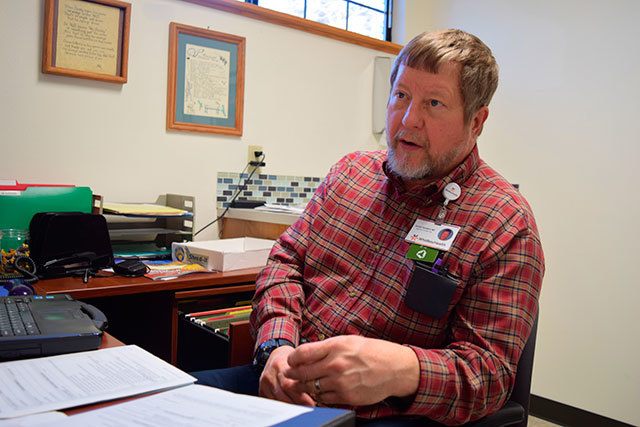Chances are you’ve made plans for the weekend, for your vacation, even for your pet’s next vet visit.
But have you made plans for the one certainty in life — your death?
WhidbeyHealth wants Whidbey Island residents to start planning for the inevitable. It has a goal of getting 90 percent of adults to complete documents known as advance care directives and to have the information readily available in electronic medical records.
Dr. Jerry Sanders, WhidbeyHealth Hospice Care Medical Director, spoke about the need to think through scenarios we’d all rather not contemplate at a public forum last week at the Coupeville Library.
“If you’re being kept alive with feeding tubes and a machine breathing for you, would that be acceptable to you?” he asked some 50 people who attended. “There’s lots of different circumstances you need to think about.”
Living wills, appointing a health care proxy or naming a power of attorney are all examples of advance directives.
They are written documents instructing others on what their personal, spiritual, medical and legal wishes are should they become seriously ill, or are unable to make decisions on your health.
Writing down specifically what life-sustaining medical care an individual wants takes the burden, angst and guilt off family and friends, Sanders said. It also gives physicians clear signals about what measures should be taken if a person becomes incapacitated.
“Hope is not a plan,” Sanders said, quoting Dr. Atul Gawande, a Boston surgeon and author of the best-seller, “Being Mortal.”
“An advance care plan is a process of communication,” he said. “It’s a gift to your family and your loved ones. You don’t want them to have to guess: ‘Do we keep him on life support?’ ‘Do we do the surgery?’ ‘Do we continue the chemotherapy?’
“It is extremely stressful for all involved. You have to have the ‘what-if’ discussion beforehand.”
WhidbeyHealth CEO Geri Forbes said she was in her 30s when she first put her end-of-life wishes in writing.
“I did it to make things easier on my family,” she said. “I think this process is about being in control of your entire life. For some people, talking about death is okay. For others, it’s uncomfortable. Our goal is to make it more comfortable.”
But even some doctors are reluctant to broach the subject. It goes against their training and their purpose, said Dr. John Hassapis, general surgeon at WhidbeyHealth Medical Center.
“Some doctors do find this very difficult to talk about,” said Hassapis. “But if you live, you’re going to die. That’s a certainty.”
Hassapis said he’s witnessed families torn apart when confronted with making agonizing decisions. Knowing what their loved one wanted done on their behalf eases an already painful situation.
“True love is not doing what you want,” he said. “True love is doing what someone else wants.”
In 2016, Medicare began covering advance care planning discussions as a separate and billable service.
This is to encourage physicians and other health professionals to get their patients thinking about end-of-life care.
The forum was the sixth in a series of town hall-style meetings the healthcare system has sponsored in the past year to keep the public informed on its medical center’s expansion and to address community concerns.
While most people say they would prefer to die at home, only about one-third of adults have an advance directive, according to AARP.
Other health systems around the county have similar efforts underway. One program, called Honoring Choices Pacific Northwest, is an effort co-sponsored by the Washington State Hospital Association and Washington State Medical Association. Its mission is to “honor personal values and goals near the end of life” by working with physicians and hospitals.
Sanders staff has conducted several Conversation Project workshops at Whidbey Island churches that are designed to start the process of talking about end-of-life decisions.


